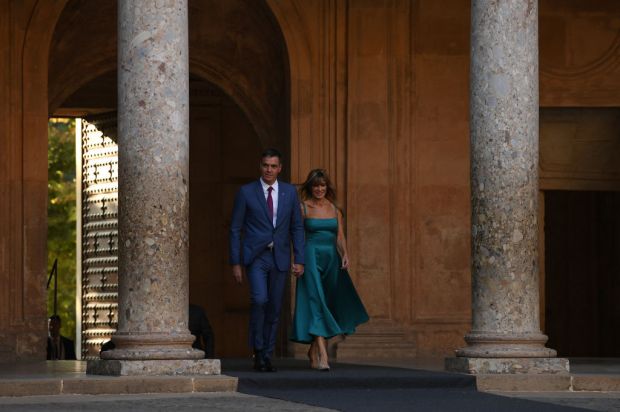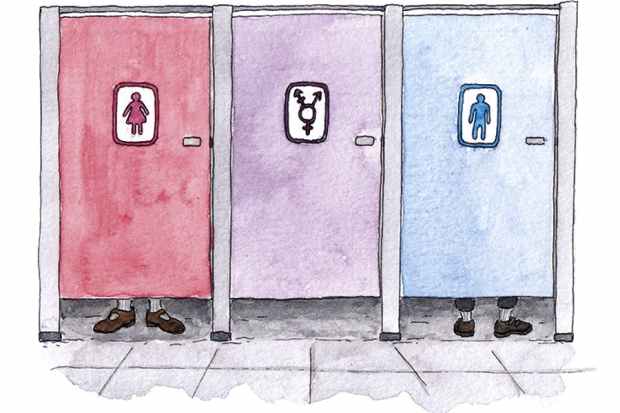Lidia Falcón O’Neill is a legendary figure in Spanish politics. Half a century ago, she stood up to Franco as head of the communist Unified Socialist Party of Catalonia. In 1974, this opposition led to her being brutally tortured:
‘When she fainted they untied her and laid her on the ground. They woke her up with a bucket of water. … She stayed on the ground, wet, for hours, until they took her down to the cell. … On the sixth day, the torturers could not continue with the same sessions. They could no longer hang her on the wall because she was rapidly losing consciousness because of it. So, when she woke up, she kept getting punched and kicked while lying on the ground.’
Now aged 85, Falcón – who is president of the Feminist Party of Spain (PFE) – is back on the frontline of Spanish politics – and her latest detractors are the transgender mob who tolerate no dissent on the discussion of gender. The PFE are vocal in their opposition to new ‘trans laws’ in Spain. That has put them at odds with other left-wing parties, and last year they were thrown out of the United Left.
The Spanish government is something of a leftish cocktail. Headed up by Pedro Sánchez’s mainstream Spanish Socialist Workers party, it relies on support from ‘United We Can’. This is a coalition of parties, including the United Left, which is pursuing new trans laws – legislation that could offer tick box gender changes on demand and allow the medicalisation of transgender-identified children – with enthusiasm.
Such laws offer little benefit to transsexuals like me, who are already well protected by existing legislation. In Spain,as well as the UK, people who suffer from a diagnosable psychological condition can even change their legal sex, should they wish to do so. But that is insufficient for LGBTQ lobby groups who seek to radically shake up society.
The Spanish women’s rights group Against the Erasure of Women (CEBM) told me that the government proposes to remove the checks and balances to allow anyone to choose their registered sex, whether or not they are transsexual.
‘In general terms, the aim is to replace the concept of ‘sex’ by ‘gender’, which will reinforce sexist stereotypes and jeopardise what has been achieved in terms of equality,’ a representative of the party said.
In Catalonia, the law on male violence has already been reformed. Campaigners say that this change now means that men who identify as women may be able to enter domestic violence shelters for victims. This is a worrying precedent and could put some of the most vulnerable women in society at further risk of harm. Yet in Spain, as in Britain, few are willing to go public against this emerging trans orthodoxy.
It’s not hard to see why this reluctance exists. Spanish authorLucía Etxebarria, who did speak out in defence of JK Rowling, has faced intimidation, harassment and abuse:
‘There was a defamation campaign, then they started accusing me of plagiarism. There were death threats but the worst was that they found a picture of my 17-year-old daughter and circulated it. Suddenly my daughter received millions of messages in her Instagram account. Even at school she was receiving threats.’
As with many women in Britain, Etxebarria is not anti-transgender, she is just worried about the practical implications of getting rid of the concept of sex. Etxebarria is concerned that the law is being changed quietly because people are too frightened to speak out. ‘So many people here stopped the fight because every time they talk, they receive so much harassment,’ she told me.
And that brings us back to the formidable Lidia Falcón. Nearly 50 years after she was tortured by Franco’s regime, she faces a new form of totalitarianism. The Barcelona prosecutor’s office against hate crimes has opened proceedings against her. This came about after the Trans Platform Federation complained about her denying the identity of trans people. Falcón is unperturbed: she says that hate crime is a political crime ‘because it persecutes expressions. It does not chase facts…The moment we open the door to policing opinions, who knows where we’ll end up?’
As Sánchez’s government prepares to career down a path that will demolish the sex-based rights of women, and compromise the safeguarding of children and vulnerable people, we’d do well to listen to Falcón.
Got something to add? Join the discussion and comment below.
Get 10 issues for just $10
Subscribe to The Spectator Australia today for the next 10 magazine issues, plus full online access, for just $10.




















Comments
Don't miss out
Join the conversation with other Spectator Australia readers. Subscribe to leave a comment.
SUBSCRIBEAlready a subscriber? Log in